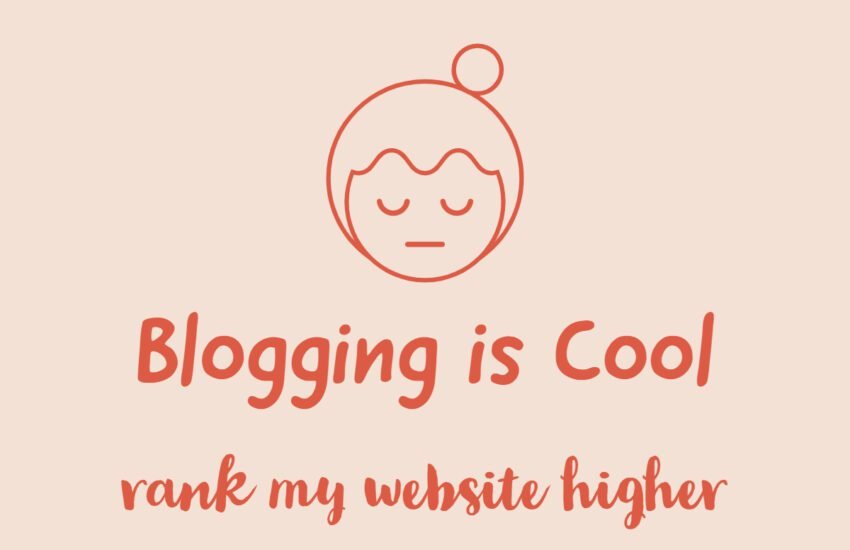10 Free Keyword Research Tools and Why You Should Use Them
Keyword research is an essential part of any successful SEO strategy. By identifying the right keywords to target, you can improve your website’s visibility in search engine results and attract more organic traffic. While there are many paid keyword research tools available, there are also several free options that can provide valuable insights. In this article, we will explore seven free keyword research tools and discuss why you should consider using them over the paid tools.
1. Google Keyword Planner
Google Keyword Planner is one of the most popular and widely used keyword research tools. It allows you to discover new keywords, get search volume data, and analyze keyword trends. The tool provides valuable insights into keyword competition and helps you identify the most relevant keywords for your website. While it is primarily designed for Google Ads users, it can be a valuable resource for organic keyword research as well.
2. Ubersuggest
Ubersuggest is a free keyword research tool that provides comprehensive keyword data. It offers keyword suggestions, search volume, CPC (cost per click), and competition data. Ubersuggest also provides insights into the top-ranking pages for specific keywords, allowing you to analyze your competition and optimize your content accordingly. The tool offers a user-friendly interface and is suitable for both beginners and experienced SEO professionals.
3. Answer the Public
Answer the Public is a unique keyword research tool that generates keyword ideas based on questions people ask on the internet. It provides a visual representation of keyword suggestions, making it easy to identify long-tail keywords and understand user intent. Answer the Public can help you create content that answers specific questions and addresses the needs of your target audience.
4. Keyword Surfer
Keyword Surfer is a browser extension that integrates with Google search results. It provides keyword data directly within the search engine, allowing you to see search volume, related keywords, and domain-level keyword data. Keyword Surfer is a convenient tool for quick keyword research and competitor analysis, as it eliminates the need to switch between different platforms.
5. Google Trends
Google Trends is a free tool that allows you to explore the popularity of search terms over time. It provides insights into keyword trends, regional interest, and related queries. By using Google Trends, you can identify seasonal trends, discover rising keywords, and optimize your content based on current search trends. It is a valuable tool for staying up-to-date with the latest search behavior.
6. Moz Keyword Explorer
Moz Keyword Explorer offers a limited free version that provides basic keyword research data. It offers keyword suggestions, search volume, and difficulty scores. While the free version has some limitations, it can still be a useful tool for getting started with keyword research. Moz Keyword Explorer also provides additional features and more comprehensive data in its paid version.
7. Keywords Everywhere
Keywords Everywhere is a browser extension that displays keyword data directly on various websites, including Google search results, Google Analytics, and YouTube. It provides search volume, CPC, and competition data for keywords, making it easy to analyze keyword opportunities. Keywords Everywhere is a time-saving tool that eliminates the need to manually search for keyword data on different platforms.
6. KeywordTool.io
KeywordTool.io is a free alternative to Google Keyword Planner. It provides keyword suggestions from various sources, including Google Autocomplete, Bing, YouTube, and more. This tool also offers filtering options to help you refine your keyword research.
7. Soovle
Soovle is a keyword research tool that aggregates autocomplete suggestions from multiple search engines, including Google, Bing, Yahoo, YouTube, and Amazon. It provides a quick overview of popular keyword suggestions, helping you discover new ideas for your blog content.
8. Moz Keyword Explorer
Moz Keyword Explorer offers a free version of its keyword research tool. It provides valuable insights such as search volume, difficulty score, and organic CTR opportunity. While the free version has limitations, it can still be useful for finding keyword ideas and analyzing their potential.
9. Keyworddit
Keyworddit is a unique keyword research tool that extracts keywords from Reddit. By analyzing the most popular keywords used in Reddit threads, you can uncover valuable insights and discover trending topics that resonate with your target audience.
10. Keyword Sheeter
Keyword Sheeter is a simple yet effective keyword research tool. It generates keyword suggestions by taking a seed keyword and expanding it into hundreds of related keywords. This tool can help you uncover long-tail keywords that are less competitive and more specific to your blog’s niche.
Now that we have explored these free keyword research tools, let’s discuss why you should consider using them over the paid tools.
Cost-effectiveness
One of the main advantages of free keyword research tools is their cost-effectiveness. They provide valuable data and insights without requiring any financial investment. This is particularly beneficial for small businesses and individuals with limited budgets who still want to improve their SEO efforts.
Accessibility
Free keyword research tools are accessible to everyone with an internet connection. They do not require any subscriptions or account registrations, making them a convenient choice for quick keyword research. Whether you are a beginner or an experienced SEO professional, these tools can be easily accessed and utilized.
Valuable Insights
While paid keyword research tools often offer advanced features and more comprehensive data, free tools can still provide valuable insights. They can help you identify relevant keywords, understand user intent, and analyze your competition. By leveraging the data provided by these free tools, you can optimize your content and improve your website’s visibility in search engine results.
Complementary Use
Free keyword research tools can be used in conjunction with paid tools to enhance your keyword research efforts. They can provide additional keyword suggestions and insights that may not be available in the paid tools. By combining the data from both free and paid tools, you can create a more comprehensive keyword strategy.
Conclusion
These 10 free keyword research tools provide a range of options to help you optimize your blog for search engines. By leveraging these tools, you can discover valuable keywords, understand user intent, and create content that resonates with your target audience. Remember, effective keyword research is an ongoing process, so don’t hesitate to experiment with different tools and strategies to find what works best for your blog.
Free keyword research tools offer a cost-effective and accessible way to improve your SEO efforts. They provide valuable insights, keyword suggestions, and competitive analysis data. While paid tools may offer more advanced features, free tools can still be a valuable resource for keyword research. Consider using these free tools in combination with paid tools to enhance your keyword strategy and drive more organic traffic to your website.
Frequently Asked Questions
1. **What are keyword research tools and why are they important for SEO?**
Keyword research tools are software or online platforms that help identify relevant keywords and phrases that people use when searching for information, products, or services online. They are crucial for SEO because they enable website owners and marketers to understand the language and intent of their target audience, optimize their content accordingly, and improve their search engine rankings and organic traffic.
2. **What are some free keyword research tools available?**
There are several free keyword research tools available that provide valuable insights into search volume, keyword difficulty, related keywords, and more. Some popular options include Google Keyword Planner, Google Trends, Ubersuggest, KeywordTool.io, AnswerThePublic, and Soovle. These tools offer varying features and functionalities but can be highly effective in helping you discover new keyword opportunities and optimize your content strategy.
3. **How does Google Keyword Planner work and how can I use it effectively?**
Google Keyword Planner is a free tool provided by Google Ads that helps advertisers identify keywords for their ad campaigns. To use it effectively for keyword research, start by entering a seed keyword or website URL related to your niche or topic. Google Keyword Planner will then generate keyword suggestions along with data on search volume, competition level, and suggested bid prices. Analyze the keyword metrics to identify high-volume, low-competition keywords that are relevant to your content or business.
4. **What insights can I gain from using Google Trends for keyword research?**
Google Trends is a free tool that provides insights into the popularity and trends of specific search terms over time. By entering keywords or topics into Google Trends, you can see how their search interest has changed over time, their regional popularity, related queries, and trending topics. Use Google Trends to identify seasonal trends, emerging topics, or niche interests within your industry, which can inform your content strategy and help you target trending keywords.
5. **How does Ubersuggest help with keyword research, and what features does it offer?**
Ubersuggest is a free keyword research tool developed by digital marketing expert Neil Patel. It provides keyword suggestions, search volume data, keyword difficulty scores, and competitor analysis to help you identify valuable keywords for your SEO and content marketing efforts. Ubersuggest also offers features like content ideas, backlink data, and site audit reports, making it a comprehensive tool for optimizing your website’s performance.
6. **Can KeywordTool.io be useful for keyword research, and how does it differ from other tools?**
KeywordTool.io is a free keyword research tool that generates keyword suggestions from Google’s autocomplete feature. It provides keyword ideas based on actual search queries entered by users, offering insights into long-tail keywords and popular search terms related to your topic. KeywordTool.io also supports keyword research for multiple search engines, including Google, YouTube, Bing, Amazon, and more, making it a versatile tool for various online platforms and marketing channels.
7. **What unique insights can AnswerThePublic offer for keyword research?**
AnswerThePublic is a free keyword research tool that visualizes search queries in the form of a visual map or list of questions, prepositions, and related queries. It aggregates data from search engines like Google and Bing to generate insights into what people are searching for and the common questions or concerns they have related to a specific topic. Use AnswerThePublic to discover long-tail keywords, content ideas, and opportunities to address your audience’s informational needs effectively.
8. **How can Soovle help with keyword research, and what sets it apart from other tools?**
Soovle is a unique free keyword research tool that aggregates keyword suggestions from multiple search engines and platforms, including Google, Bing, Yahoo, YouTube, Amazon, and Wikipedia. By entering a seed keyword into Soovle, you can see keyword suggestions from various sources on a single page, providing a comprehensive overview of search trends and user intent across different platforms. This can help you identify untapped keyword opportunities and tailor your content strategy accordingly.
9. **Are there any limitations or drawbacks to using free keyword research tools?**
While free keyword research tools offer valuable insights and functionality, they may have limitations compared to paid tools, such as restricted access to certain features or limited data availability. Free tools may also be more basic in terms of user interface and reporting capabilities, and they may lack advanced analytics or customization options. However, for many website owners and marketers, free keyword research tools can still provide significant value and help optimize their SEO efforts effectively.
10. **How can I leverage free keyword research tools to improve my SEO strategy and content creation process?**
To leverage free keyword research tools effectively, start by identifying your target audience, understanding their search intent, and brainstorming relevant topics and keywords related to your niche or industry. Use keyword research tools to validate your ideas, discover new keyword opportunities, and prioritize your content topics based on search volume, competition level, and relevance. Incorporate target keywords naturally into your website content, meta tags, headings, and URLs to optimize for search engines and attract organic traffic. Regularly monitor keyword performance and adjust your strategy as needed to stay competitive and drive consistent results.

